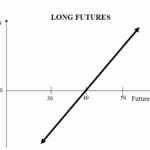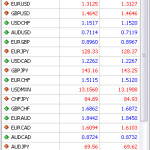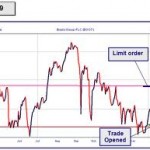What are Currency Swaps?
Before we get into currency swaps, you first need to understand what swaps actually are. They’re very different from your standard currency spot or futures contracts, and certainly not as simple to understand.
The generally accepted definition of a swap is a derivative in which counter parties exchange certain benefits of one party’s financial instrument for the benefits of the other party’s financial instrument.
Currency swaps are a type of swap that is agreed between two parties in order to exchange the benefits of a loan in one currency for the equivalent benefits in net present value of the loan in another currency. These benefits are of course the principal and interest payments of the loan. Currency swaps are unique in that they are traded “over the counter” which means that each swap is tailored for the two counter parties involved. This is significant, because there is considerably less counter party risk present in such a transaction than if you were to trade on an exchange.
How Do Currency Swaps Exchange Loans?
Now that we’ve established that currency swaps are essentially a vehicle for two parties to “exchange loans”, it’s time to go deeper into exactly what that involves. Unlike other swaps, currency swaps actually allow the exchange of the principal of the loan in addition to the interest due on the loan. There are a few ways to set up a currency swap, and I will go through the most popular methods below.
First and most simply, you can set up a currency swap to exchange only the principal with your counter party at a specific future date at a rate agreed between the two of you right now. This is essentially a futures contract, and the process for creating this swap for most short term maturities isn’t cost effective, which is why you will seldom see a currency swap with a maturity of less than 10 years. It’s simply cheaper to buy the equivalent futures contract with the maturity you want than to draw up your own currency swap in the short term. However, in the case where you want a maturity beyond 10 years, you will find that the appropriate futures contracts are trading at a very wide spread, meaning that it’s more cost effective to set up an appropriate currency swap.
Another way to set up a currency swap is to combine the exchange of the principal with an interest rate swap component. In this kind of swap arrangement, the cash flow from the interest component are not netted before they are paid to the counter party, because they are denominated in a different currency. Essentially, one party borrows on the other’s behalf, so this is called a “back to back” loan.
Finally, it’s also possible just to swap the interest payment cash flows on loans of the same size and maturity. As this is also a currency swap, the cash flows from the interest are in different currencies as with the structure above, so they are not netted.
Why Even Bother With Currency Swaps At All?
If this all sounds a little complicated to you, don’t worry. People generally do not speculate on currency swaps, especially the over the counter variety. They are generally used by companies, banks and other institutions for two purposes: securing cheaper debt, and hedging their currency risk.
As you can imagine, it’s certainly not cheap to secure large amounts of debt, especially in the aftermath of the Global Financial Crisis. Because of the rising cost of debt, large institutions have turned to currency swaps to secure cheaper debt. They do so by borrowing at the cheapest available rate wherever it is to be found in the world, and then swapping this debt for debt in the desired currency using a back to back loan. Currency swaps are also a very effective hedging tool, because two companies will be able to literally swap the principal of their foreign debt for their home currency and thereby reduce their exposure to currency risk.
Related Posts
Have you Tried Binary Options Trading Yet?
 Binary Options trading is one of the newest forms of trading to hit the markets. Binary options allows you to trade currencies, stocks or indices with fixed odds. For more information visit our recommended broker now:
Binary Options trading is one of the newest forms of trading to hit the markets. Binary options allows you to trade currencies, stocks or indices with fixed odds. For more information visit our recommended broker now:











